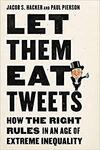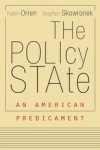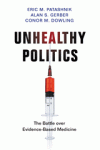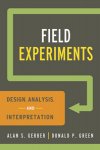Publications
About Our Publications
On this page you will find a list of publications by ISPS Affiliates, including peer-reviewed journal articles, policy briefs, and working papers.
When possible, Publications are linked to Projects and Data via the ISPS KnowledgeBase.
| Title | Author(s) |
Discipline |
Publication | Year |
|---|---|---|---|---|
| It's Largely a Rigged System: Voter Confidence and the Winner Effect in 2016 |
Betsy Sinclair, Steven S. Smith, and Patrick D. Tucker |
Political Science | Political Research Quarterly | 2018 |
| A Field Experiment on Legislators’ Home Styles: Service versus Policy |
Daniel Butler, Christopher Karpowitz and Jeremy Pope |
Political Science | Journal of Politics | 2012 |
| Do Congressional Candidates Have Reverse Coattails? Evidence from a Regression Discontinuity Design |
David E. Broockman |
Political Science | Political Analysis | 2009 |
| Response to Franz, Freedman, Goldstein, and Ridout |
Jonathan S. Krasno, Donald P. Green |
Political Science | Journal of Politics | 2008 |
| Does the U.S. Congress Respond to Public Opinion on Trade? |
Boram Lee, Michael Pomirchy, and Bryan Schonfeld |
Political Science | American Politics Research | 2023 |
| The Generalizability of Online Experiments Conducted During the COVID-19 Pandemic |
Kyle Peyton, Gregory A. Huber, and Alexander Coppock |
Political Science | Journal of Experimental Political Science | 2021 |
| Reporting Guidelines for Experimental Research: A Report from the Experimental Research Section Standards Committee |
Alan Gerber, Kevin Arceneaux, Cheryl Boudreau, Conor Dowling, Sunshine Hillygus, Thomas Palfrey, Daniel R. Biggers and David J. Hendry |
Political Science | Journal of Experimental Political Science | 2014 |
| Persuading US White Evangelicals to Vaccinate for COVID-19: Testing Message Effectiveness in Fall 2020 and Spring 2021 |
Scott E. Bokemper, Alan S. Gerber, Saad B. Omer, Gregory A. Huber |
Political Science | Proceedings of the National Academy of Sciences | 2021 |
| Problem-solving Criminal Justice |
Steven Teles |
Political Science | ISPS working paper | 2025 |
| Avoiding Post-Treatment Bias in Audit Experiments |
Alexander E. Coppock |
Political Science | Journal of Experimental Political Science | 2019 |
| Primary Voters Versus Caucus Goers and the Peripheral Motivations of Political Participation |
Eitan Hersh |
Political Science | Political Behavior | 2012 |
| Affect, Social Pressure and Prosocial Motivation: Field Experimental Evidence of the Mobilizing Effects of Pride, Shame and Publicizing Voting Behavior |
Costas Panagopulos |
Political Science | Political Behavior | 2010 |
| Corruption and Inequality at the Crossroad: A Multi-Method Study of Bribery and Discrimination in Latin America |
Brian J. Fried, Paul Lagunes, Atheendar Venkataramani |
Political Science | Latin American Research Review | 2010 |
| Why So Little Sectionalism in the Contemporary United States? The Under-representation of Place-Based Economic Interests |
Jacob S. Hacker, Paul Pierson, and Sam Zacher |
Political Science | Book chapter | 2023 |
| A Note on Close Elections and Regression Analysis of the Party Incumbency Advantage |
Peter M. Aronow, David R. Mayhew and Winston Lin |
Political Science | Statistics, Politics, and Policy | 2015 |
| Identifying Legitimacy: Experimental Evidence on Compliance with Authority |
Eric S. Dickson, Sanford C. Gordon, and Gregory A. Huber |
Political Science | Science Advances | 2022 |
| Why People Vote: Estimating the Social Returns to Voting |
Alan S. Gerber, Gregory A. Huber, David Doherty and Conor M. Dowling |
Political Science | British Journal of Political Science | 2016 |
| When Do Governments Resort to Election Violence? |
Emilie M. Hafner-Burton, Susan D. Hyde and Ryan S. Jablonski |
Political Science | British Journal of Political Science | 2013 |
| The Persuasive Effects of Direct Mail: A Regression Discontinuity Based Approach |
Gerber, Alan S., Daniel P. Kessler and Marc Meredith |
Political Science | Journal of Politics | 2011 |
| How Much Should We Trust Instrumental Variable Estimates in Political Science? Practical Advice Based on 67 Replicated Studies |
Apoorva Lal, Mackenzie Lockhart, Yiqing Xu, and Ziwen Zu |
Political Science | Political Analysis | 2024 |
ISPS Working Paper Series
ISPS advances interdisciplinary research in the social sciences that aims to shape public policy and inform democratic deliberation. The ISPS network includes scholars and students from many departments in the Faculty of Arts and Sciences and from Yale’s graduate and professional schools as well as select experts from other institutions. The ISPS Working Paper Series provides a platform for ISPS affiliates to make their work available for public consumption and discussion.
Featured Books by ISPS Faculty
ISPS Sponsored Publications
ISPS Politics & Policy Book Series: A series striving to place policy- and law-making in historical and comparative perspective, reflecting the broad, multidisciplinary character of ISPS.
ISPS Journal: A biannual publication that serves to highlight ISPS scholars’ publications and as a development piece for foundations and interested donors.
GOTV website: A website compiling results from a wide array of voter mobilization field experiments. Findings from these scientifically measured studies of various Get-Out-the-Vote methods offer valuable insight into which methods are most effective in mobilizing voter turnout (Note: the website indexes GOTV experiments published before 2006).
The Bulletin of Yale University includes several issues devoted to ISPS (PDF): 2000-2002, 2002-2004, 2004-2006, and 2006-2008.






